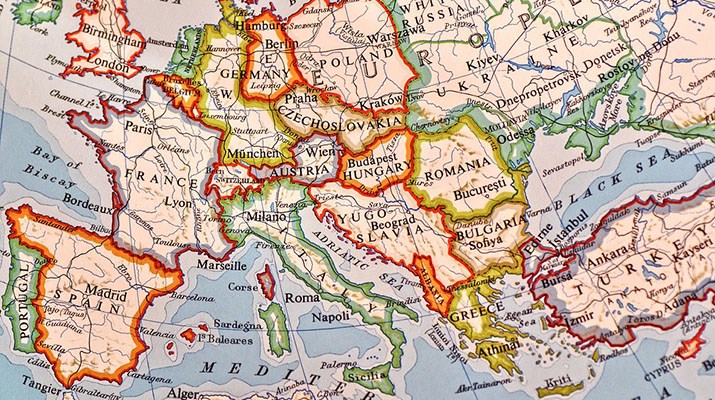
Investors in Europe have faced numerous challenges in recent years, from the sovereign debt crisis to Brexit negotiations, as the Covid-19 pandemic has only added to the obstacles facing the continent. But bullish investors insist there are opportunities for those willing to take a long-term view.
Sam Morse, manager of the Silver-star rated Fidelity European Values trust (FEV) admits: “Clearly it’s been a very disappointing period for the continental European market, which fell sharply to the end of march. We’re down almost double digits year to date.”
Indeed, the fund is down more than 9% since the start of the year, but a focus on companies with strong balance sheets means the fund has not endured the steeper falls seen on the wider market. What these businesses have over their competitors, says Morse, is the ability to invest or make acquisitions even when times are difficult.
Yet, the manager takes a cautious approach. At times of volatility, Morse prefers to take a step back and watch, rather than trade. “Unless you’re a great trader, it’s better to sit on your hands,” he says. “The cost of trading is much higher during a crisis and the costs of timing it wrong can be high as well. When I do make changes, they must be ones I won’t repent, made for sensible reasons.”
Brewers Benefit from Lockdown
It's a strategy shared by James Milne, co-manager of the Silver-rated Crux European Special Situations. However, Milne has taken advantage of the recent sell-off to top up a couple of positions in his portfolio, buying shares in Danish brewer Carlsberg (CABGY) and Amadeus (AMS), a Spanish IT provider for the global travel and tourism industry.
Milne thinks Carlsberg can benefit from more people drinking at home while lockdown measures are in force. He adds: “The company also has one the best balance sheets in the sector. We like the management team, who have been there for a while, and we were incentivised by the share price." Shares in the brewer dropped 30% in the peak of the bear market, from 994 Danish Krone to 663. They have since recovered to 866 DKK.
But it's been a challenged time for Amadeus - the firm services the travel and tourism industry, which has been among the worst affected sectors of the Covid-19 crisis. But “it’s an amazing company”, says Milne, and he expects good returns in the future. Morse also rates the stock as a strong business with high barriers to competition. The shares are yet to show the same signs of recovery as Carlsberg down, and are down more than 30% year to date.
Another poor performer in the travel sector, which Morse holds, is MTU Aero Engine (MTX), which provides parts for airplane engines.
More holdings
With an eye on the long-term, these European fund managers are trying to tap into the trends that will endure regardless of the crisis. “In essence, we like some themes without being a thematic fund per se,” says Milne. He likes companies poised to benefit from themes such as digitisation, including Nordic IT infrastructure firm Atea (ATEA).
It is this ability to look to the long-term that has earned the fund its Silver Morningstar Analyst rating. While the fund is down 9.4% year to date, it has produced annualised returns of 5.5% over five years. Morningstar analyst Samuel Meakin likes the fund’s investment process which “focuses on finding high-quality firms with high returns on capital and free cash flow generation, run by managements with proven track records of shrewd capital allocation and strong alignment of interests with shareholders".
Morse, meanwhile, likes Swedish Match (SWMA), a defensive business which makes tobacco-free nicotine patches, it has been among the trust's strongest holdings. Other top performers including healthcare and consumer staples companies Nestle, Novo Nordisk and Roche.
Companies with spare cash on the balance sheet are particularly appealing at times of uncertainty, and he points to an investment in German opticians Fielmann (FIE) as one example. “It’s a successful family business that has been criticised for holding too much cash. But that strategy is helping the firm right now, when few stores are open and sales are low," he explains. "It can survive with virtually zero revenue for a number of months, which is not true of many of its rivals. These strong companies will emerge in a stronger position.”
At the other end of the spectrum, banks have detracted from performance. For Morse the loss comes from names such as Dutch bank ABN AMRO (ABN) and KBC Belgium (KBC). Milne holds Austrian bank called Bawag (BGV) - it's share price has fallen in the recent volatility but Mile rates the "dynamic" chief executive and thinks it will prove to be a resilient business.




























